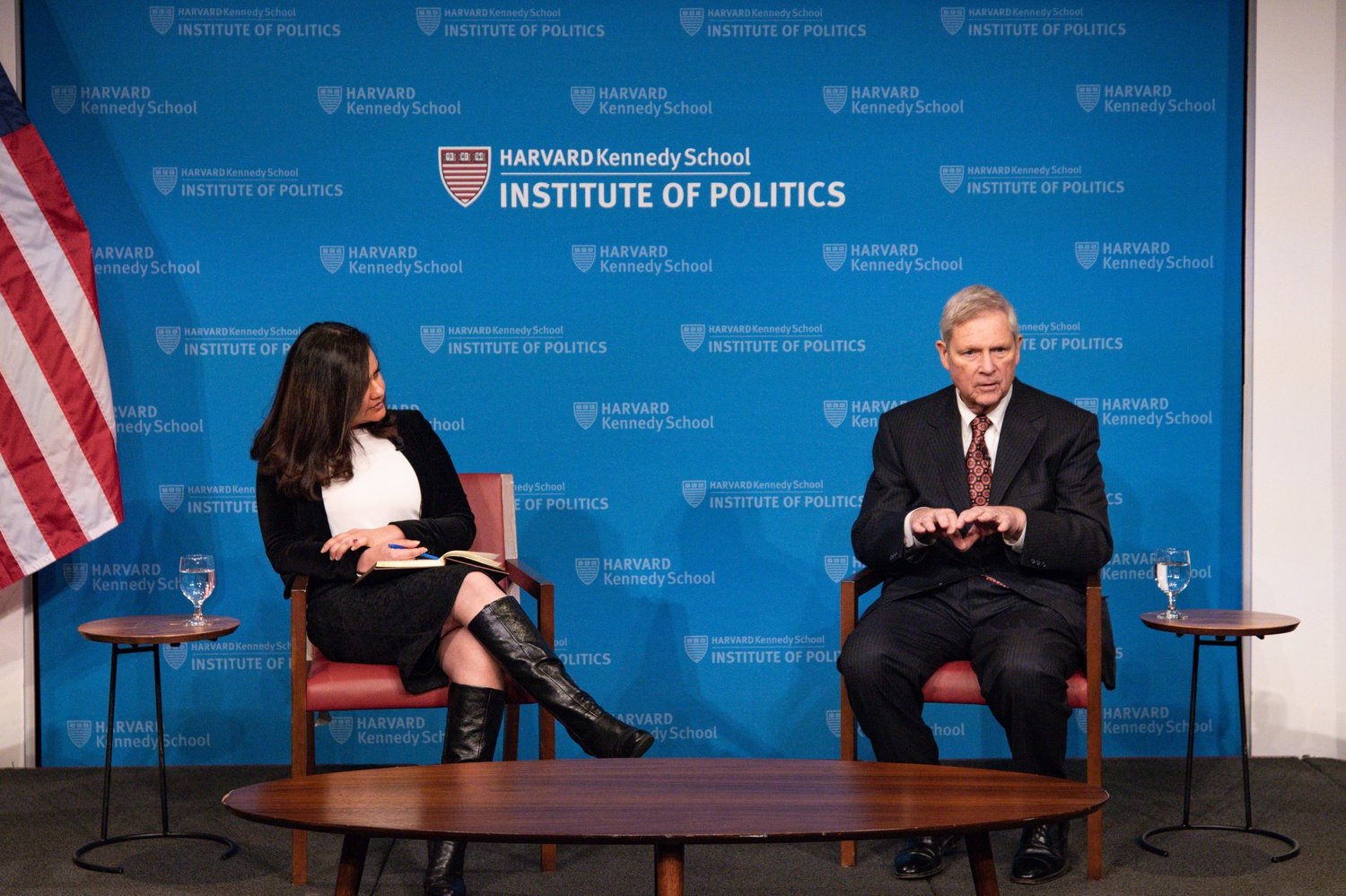
News
Summers Will Not Finish Semester of Teaching as Harvard Investigates Epstein Ties

News
Harvard College Students Report Favoring Divestment from Israel in HUA Survey

News
‘He Should Resign’: Harvard Undergrads Take Hard Line Against Summers Over Epstein Scandal

News
Harvard To Launch New Investigation Into Epstein’s Ties to Summers, Other University Affiliates

News
Harvard Students To Vote on Divestment From Israel in Inaugural HUA Election Survey
Tom Vilsack Says Mass Deportations May Be ‘Devastating’ for Agriculture at IOP Forum

U.S. Agriculture Secretary and former Institute of Politics fellow Tom J. Vilsack said mass deportation “could be devastating on agriculture” at an IOP forum Thursday evening.
The forum, moderated by Harvard Government lecturer Sparsha Saha, covered the impact of immigration on agriculture, how climate incentives can improve agriculture and benefit rural America, and the need to improve American nutrition and food access.
Asked about Donald Trump’s promise to pursue mass deportations during his second term, Vilsack pointed to the role immigrants have in American farming.
“If, in fact, there were mass deportations, there is no industry, in my view, that would be more significantly impacted than agriculture,” Vilsack said.
Vilsack also expressed frustration over political disagreements that have stalled legislation like the Farm, Food, and National Security Act of 2024, which includes funding for agricultural research and farming risk management tools, as well as access to nutrition for low-income families, conservation program availability, and trade development.
“What’s frustrating to me is that agriculture had the answer,” Vilsack said, adding that “it’s much better and more fun to basically divide this country on the issue of immigration than it is to solve the problem.”
Vilsack also pushed back on the common refrain that immigrants are “stealing jobs” from Americans, highlighting the physically taxing nature of farm work.
“The immigrant population,” Vilsack said, “they come here, they take these jobs nobody really wants to do because they’re really physically difficult.”
“And then they go home exhausted, and they look at their kids and they say, ‘Don’t do what I’m doing. Do something better. Be something better,’” he said.
This, Vilsack added, is the “secret sauce of America.”
“We are big enough and bold enough to say, ‘Come and we will figure it out,’” Vilsack said. “We will figure out how to make it work, and how to have a common set of values, and ultimately have a sense of community and connection based on those values.”
Vilsack also discussed the benefits of climate incentives for farmers and the advantages of keeping produce local.
In his role as Secretary of Agriculture, Vilsack said, he pushed climate incentives that allow farmers to profit off of both the products and byproducts of their farms.
“Now, out of manure, they have methane that they sell, they have fertilizer they can use, they have bedding they can use, they have fertilizer they can sell, and what’s left after all of that is water clean enough to discharge directly into rivers and streams of Wisconsin,” he said.
“The local and regional food system provides a better deal for farmers, because they get 50 to 75 cents of the food dollar from the locally sold products, as opposed to 20 cents,” Vilsack added.
Vilsack also pointed to declining farmland, citing that the U.S. has lost 544,970 farms since 1981 to stress the importance of climate incentives and local economies.
“When you combine the climate opportunity and the local original food opportunity,” Vilsack said, “now you have a chance for that small, mid-sized operator to stay in business and to be — and to continue to be — small and mid-sized and still be proud.”
Want to keep up with breaking news? Subscribe to our email newsletter.
